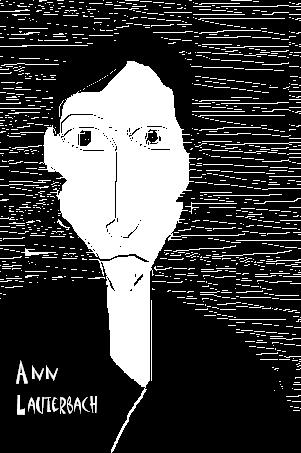
|
Excerpt from
It would have been nice
to write a response to your
book in six-word per line
couplets, although heroic couplets,
the ones that rhyme and
exhibit
constant
closure, would be more
daringly apt as paratactic form.
I would also like to have attempted
New Sentences which might
as you say
reinvigorate verbal perception
and sweep away the epic of false consciousness
but my habits of digression are fully formed
Ann Lauterbach at Academy
of American Poets
Lauterbach on form:
The experiment is always between, like a hinge, a preposition. "So much depends. . .," William Carlos Williams wrote, finding image in the structural relation between things. Recently, I was introduced as an "experimental poet." The word was uttered with disdain; I was damned with the faintest of praise. In the world of poetry, to be experimental is often taken to mean you have an aversion to form rather than an aversion to conformity. I began to give up the use of classical syntax, the logic of cause and effect, of an assumed relation between subject and object, after my sister died. The narrative as story had been ruptured once and for all; I wanted the gaps to show. When the gaps began to show, a new sense of possibility came forward in which mobile units were suspended in time and space. In the new syntactical dispensation, hinges or places of contact became an important location of meaning, as in musical composition and in much abstract art; meaning itself seemed to be the occasion of contingency. I began to perceive that the fragments among which we live are cause for celebration rather than lament.
|

